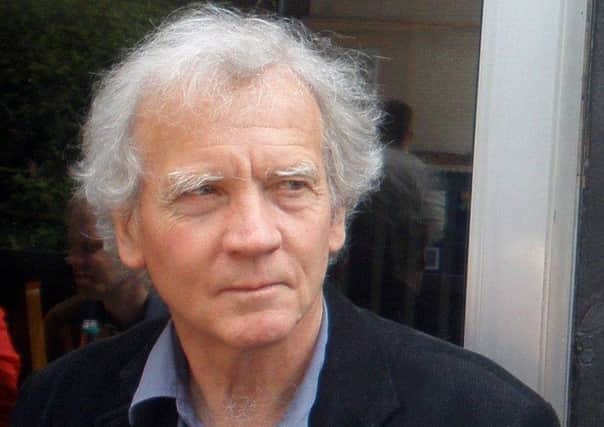StAnza festival: Fresh take on man’s inhumanity


AS IS now customary in spring, St Andrews blossoms with poetry: in theatres and civic buildings, art galleries and cafes, in wine bottles (an installation by poet and winemaker Matthew Stewart) and on paper napkins (“I nearly blew my nose on it!” said one visitor, aghast).
After being displaced last year by the sudden closure of the Byre Theatre, StAnza, Scotland’s poetry festival, was back in its usual home. Though questions still linger over the future of the theatre – and over some elements of the funding of the festival – StAnza is in splendid health, with an impressive array of guests, from famous names (Carol Ann Duffy, Louis de Bernieres, Paul Muldoon) to those urgent, original voices from all over the world whose names we should know better.
Advertisement
Hide AdThe centenary of the First World War looms large over the cultural life of the nation this year, but StAnza’s War and Remembrance theme proved anything but predictable, opening up a subject we might regard as familiar in new and illuminating ways.
So great is the legacy left by First World War poets such as Owen and Sassoon that any contemporary writer approaching the subject does so in their shadow. Poet Laureate Carol Ann Duffy, pictured, however, found an original way in. Her poignant poem Last Post imagines time running backwards, the young men freed and whole, sent home to lives full of possibilities. Duffy’s sell-out reading was one of the festival’s highlights, celebrating her 11-year on-stage partnership with musician John Sampson, a friendship made here at StAnza.
The poetry of the First World War, in English, French and German, was the subject of an outstanding lecture by poet and translator David Constantine. Erudite, engaging and accessible, Constantine brought his subject to life asking urgent questions about the responsibility of poetry in the face of war.
Some historians complain, he said, that poets have had a disproportionate effect on shaping our views of the Great War. “And so they damn well should,” he added, speaking of the importance of writers working “out of the largest possible consciousness”, telling the truth, asking the big questions.
He drew on figures such as D H Lawrence, who, though he never fought, was “fundamentally wounded” by the war, and argued that unless society could process its horrors, it would never fully recover. Lawrence argued for the importance of specifics, that the poet’s task begins with the local, with individuals.
A patchwork of writers returned to this theme through the festival. Constantine himself found a way to write war poetry through the story of his grandfather, a member of the “Pals Regiments” from Salford, killed at the Somme, sentencing his grandmother to more than 50 years of widowhood.
Advertisement
Hide AdFestival director Eleanor Livingstone spoke of her own grandfather, taken prisoner at the Somme, and reliving in the fog of old age his days in the German PoW camp. Poet Jenny Lewis read from her latest collection Taking Mesopotamia, written after searching for the father she never knew in the archives and records of the war in Iraq in 1916.
There were echoes of other wars too: Giuseppe Bartoli, reading as part of the Poetry Scotland Showcase, brought us memories of the civil war in Peru: car bombs exploding at night, bodies of the dead at the roadside wrapped in newspaper; thousands of “disappeared” who have never been found.
Advertisement
Hide AdOur contemporary wars, too, have their poets. Brian Turner was a sergeant in the US Army, scribbling what became his first volume of poetry, Here, Bullet, in notebooks during his time in Iraq. His poetry is fast-paced, as incisive as gunfire, unflinching in its observations of war, ringing with the authenticity of personal experience. Aware of the violence of his words, he said simply: “These are the times we live in, these are some of the things we must address.”
Fellow American Dan O’Brien has found another way in to the subject. His first poetry collection is War Reporter, the product of a long fascination with the Canadian photographer Paul Watson, who won a Pulitzer Prize in 1994 for his photograph of an American soldier’s body being beaten in Somalia. His dark, visceral poems illuminate the complex feelings engendered by bearing witness to war through a lens.
Does poetry have a duty to be anti-war? StAnza’s poets were divided. S M Steele, who spent time embedded with Canadian soldiers in Afghanistan, spoke passionately about the need to be objective, to be a witness and leave the reader to make their own moral choices: “War is like an orange – it is.” Constantine contended that poetry is by its nature biased, and has a duty to remain so.
Turner quoted William Stafford: “The job of a writer is not to pose answers to the questions but to ask the questions more clearly.” That’s what we’ve heard over the last few days in St Andrews: a familiar subject made fresh and urgent; questions asked, loud and clear.